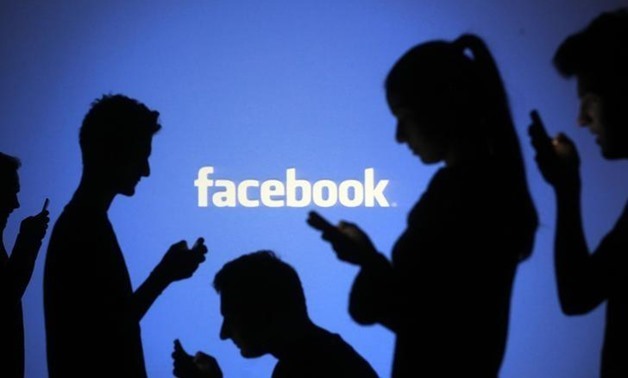
People are silhouetted as they pose with laptops in front of a screen projected with a Facebook logo, in this picture illustration taken in Zenica, October 29, 2014 – REUTERS/Dado Ruvic
CAIRO – 7 January 2018: If you are a Facebook user who is used to sharing widely spread posts on social media about terrorism and its combating operations without fact checking them, then you should know that publicly sharing fake news may lead to punishment.
Egyptian law set the penalty for anyone who publishes, broadcasts or promotes false news or statements on terrorist acts and their combating operations. Anyone who shares such news may have to pay a fine, ranging from LE 200 to 500 thousand.
This penalty is based on Article 102 of the Penal Code, which allows for the detention of “whoever deliberately diffuses news, information/data, or false or tendentious rumors, or propagates exciting publicity, if this is liable to disturb public security, spread horror among the people, or cause harm or damage to the public interest.”
The code criminalizes publishing fake news in public but you are still totally free to post whatever you want in closed groups or on your personal accounts.
Late December saw one of the most recent incidents of sharing fake news that caused harm to the country’s stability. Many Egyptian Facebook pages and accounts shared a fake warning message from the U.S. embassy in Cairo. The warning circulated on social media outlets with thousands sharing and commenting, pushing the U.S. embassy to post a tweet from its official account to warn people of the falsehood of these posts.

A post that prevailed on social media about the girl who predicted Al-Rawdah mosque terrorist attack, the attack which left 311 people killed and 121 injured, was proved not authentic, just an edited version of a complete ordinary post. The “fake” account edited the post on the same day of the attack to gain popularity. 1,200 Facebook users shared the post without making sure of its truth.


The ‘“Dh bgd”, Is it true?’ Facebook page is one of many pages launched to combat these fake posts and news and revealed its truth. The page, with more than a million followers, clarified their goal is to spread awareness among Social media users, mainly Facebook, and teach users to fact check news and information before publishing. If you are searching to see if a post on social media is true and factually accurate, you can simply send a message to the page.

Two days earlier, The Interior Ministry's Communications and Information Technology sector announced that five Facebook pages were closed for spreading fake news and inciting violence against state institutions and citizens.
Egypt is not the only country who seeks to combat spreading fake news. French President Emmanuel Macron announced that he is planning to introduce a new law meant to fight fake news.
Macron said he wanted to impose new rules on social media platforms during election periods to "protect democracy," according to The Guardian. Authorities would be able to remove content or block websites that publish fake news during election cycles.
On Facebook, Information which has not been fact checked can quickly become ‘news’.

Comments
Leave a Comment